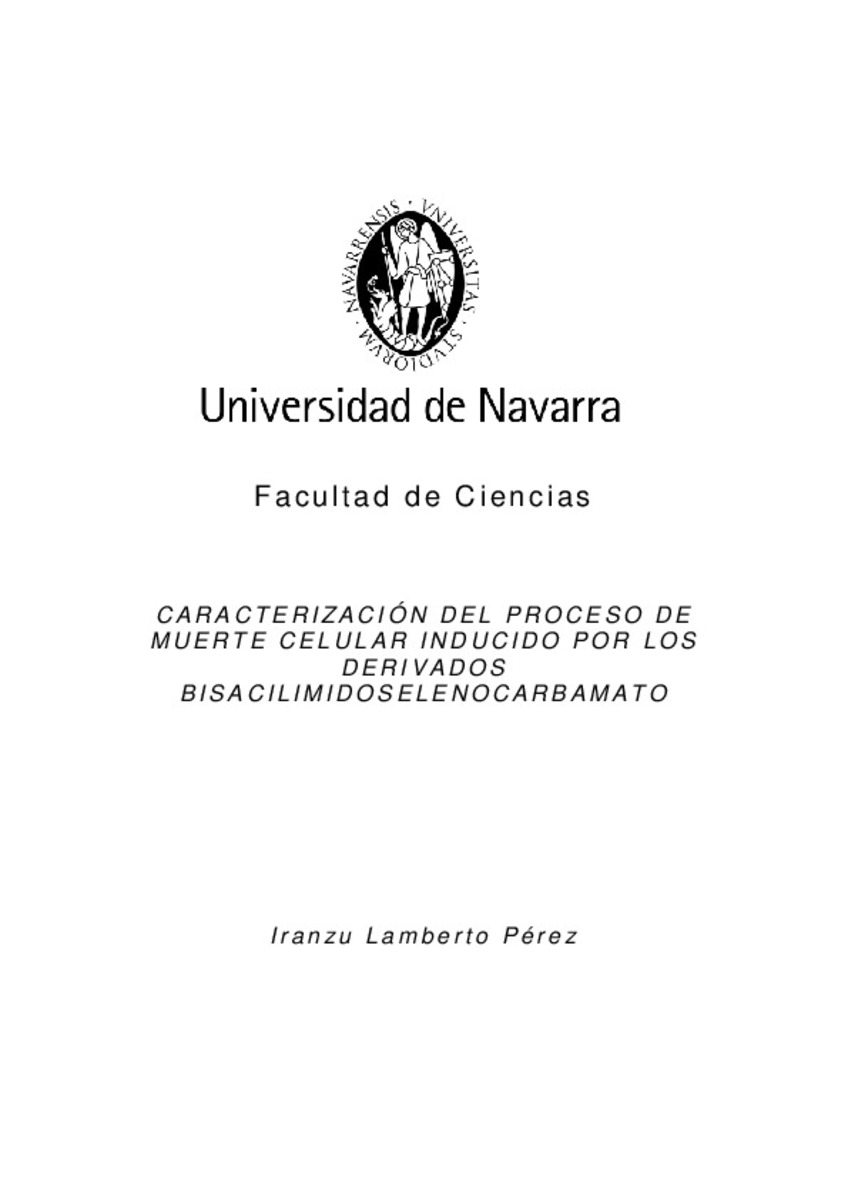Caracterización del proceso de muerte celular inducido por los derivados bisacilimidoselenocarbamato
Keywords:
Materias Investigacion::Ciencias de la vida::Bioquímica
Cultivo celular
Biología molecular
Química orgánica
Defense Date:
24-Oct-2012
Publisher:
Universidad de Navarra
Citation:
LAMBERTO PÉREZ, Iranzu. “Caracterización del proceso de muerte celular inducido por los derivados bisacilimidoselenocarbamato”. Palop Cubillo, Juan Antonio; Encío Martínez, Ignacio José. Tesis doctoral. Universidad de Navarra, 2012
Statistics and impact
0 citas en

0 citas en

Items in Dadun are protected by copyright, with all rights reserved, unless otherwise indicated.







